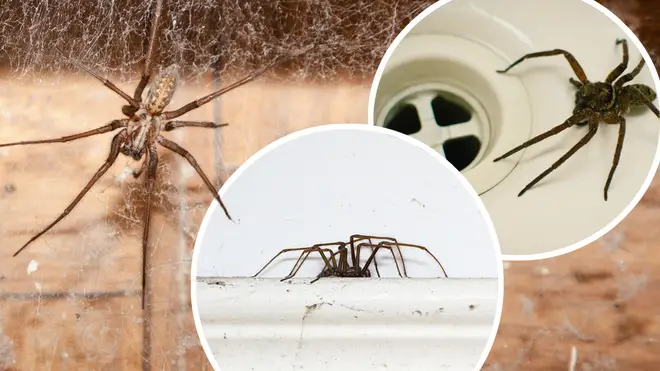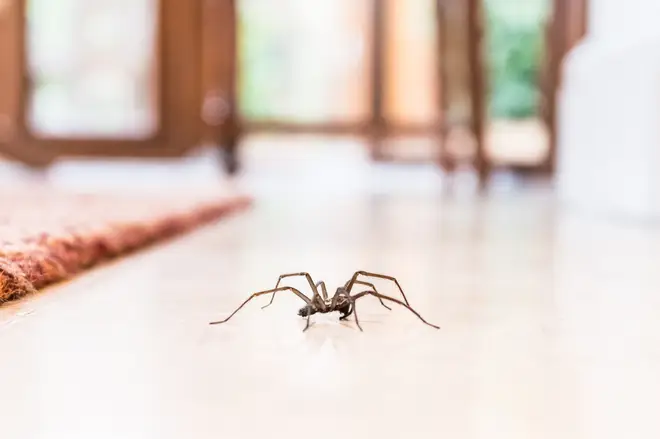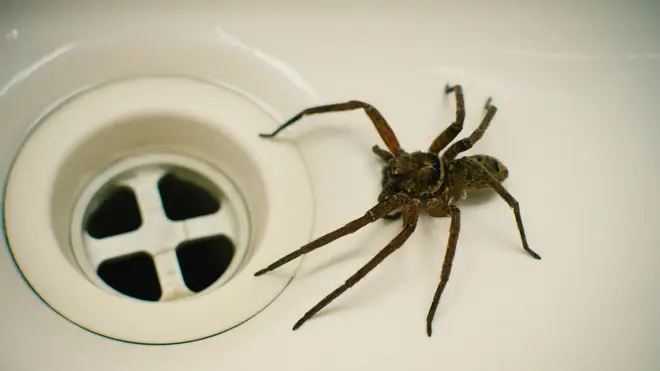Study reveals what time spiders are most active, and where they’re hiding from you
17 September 2019, 11:28 | Updated: 18 September 2019, 11:34

If you’re terrified of spiders, you might want to avoid your house around 7:35pm.
With spider season officially upon us, people up and down the UK are reporting seeing an influx of the creepy crawlies in their homes.
The real reason is because it is mating season for the arachnids, and while females weave webs in door frames and windowsills, the males enter homes to find the female and mate.
READ MORE: A record number of spiders are invading British homes, and here's why
While there are more spider sightings around this time of the year, a study has found that at certain times of the day the spiders are more active.
Professor Adam Hart, entomologist at the University of Gloucestershire, looked into 10,000 records from 250 locations in the UK in order to access when spiders are the most active and when they’re more likely to be seen.

The results found that there was a peak in spider activity around 7:35pm.
They also found that there was a peak between 6AM and 8AM, suggesting the creepy crawlies are hiding from you in drains and sinks overnight.
Speaking of the results, Professor Adam Hart said: “We think that while people are more likely to be sat down and able to view spiders at 7.30pm, the pattern of sightings in rooms other than living rooms suggests that it is not just people driving the pattern - so we think it probably does reflect some spider ecology too.”
READ MORE: The UK's spider bite capital revealed with 450 attacks
He went on: “The main message is like to convey is that spider season is really just a few weeks, that UK spiders are basically totally harmless and that spiders are incredibly important predators - natural pest controllers and their predation encourages higher biodiversity.

"So we should really celebrate spider season."
Across the UK there are 650 different species of spiders, and all of these can bite.
However, only 12 of these species can actually cause harm to a human.
READ MORE: How to spot a spider bite and how to treat it as they enter mating season































